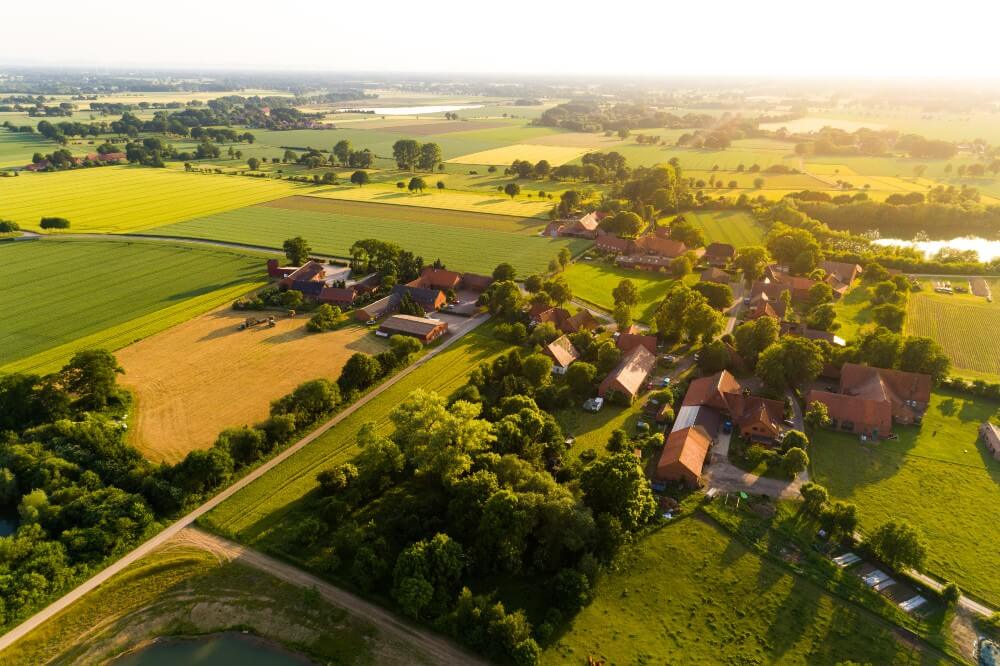How Landowners are Responding to the Impending Loss of the Basic Payment Scheme
With the Basic Payment Scheme (BPS) now being phased out, landowners need to have a strategy for their business going forward. While the government is introducing a range of grants and ongoing payments to succeed the BPS, they are not a like-for-like replacement, so many rural businesses will need to change and adapt to remain profitable.
This change is likely to represent a major challenge for most farmers and landowners. For many, it will mean they cannot continue with business as usual. But what are the options? Is it necessary to diversify and find new revenue streams? Is it possible to operate more efficiently to remain profitable? Or is it time to get out of farming entirely?
In this article, we explore these options and give our view on what landowners need to think about when deciding how to respond to the end of the Basic Payment Scheme.
Landowners’ options when the Basic Payment Scheme ends
Diversification
Diversification is often the first thing people talk about when considering how to maintain a profitable rural land business. The options include letting buildings for non-farming use, sports and recreation, tourism and hospitality, and renewable energy generation.
There is certainly money to be made from these kinds of opportunities, but there are also potential drawbacks that must be considered, such as:
- Will you get planning permission for any required change of use?
- Do you have the skills and knowledge to make a success of these ventures, or will you need to hire outside talent?
- How profitable are different forms of diversification likely to be?
- Will the time and energy you put into diversification be a distraction from your core business?
- What legal obstacles will you need to overcome, e.g. getting commercial agreements in place on favourable terms?
It is important to take the time to come up with a fully costed plan for any diversification effort, taking appropriate professional advice on the issues you will need to confront. It is also sensible to consult with other landowners who have invested in similar schemes to get their take on any particular challenges they have dealt with.
Improving efficiency through intelligent partnerships
Cutting costs to make your business more efficient and more profitable might sound like a nice idea, but is it realistic for landowners? One option that a growing number of rural business owners are considering is forming joint ventures with their neighbours to boost their buying power and share costs.
A joint venture can allow you to negotiate collectively with suppliers, securing lower prices. It can also allow you to potentially share equipment and other resources, reducing your costs. To make it work, however, you need a sound joint venture agreement which covers issues such as:
- What supplies will you purchase together, and how will prices be negotiated?
- What equipment and other resources will you share, and how will costs be split?
- How will decisions be made?
- How will any disputes be resolved?
While forming a joint venture can be a good commercial strategy, there are lots of areas where potential problems can arise. It is, therefore, essential to have the agreement drawn up by an expert commercial lawyer and to take independent advice on whether the terms match your business interests.
Exiting the industry
Farmers who feel their business may struggle without the Basic Payment Scheme may need to seriously consider whether now is the right time to exit the industry. The government’s Lump Sum Exit Scheme is open for applications until 30 September 2022 to help landowners who wish to leave farming behind.
A requirement of the scheme is to sell or rent out the land (or surrender the tenancy for those that do not own the land they farm). This may mean selling the business as a going concern or to an investor who wants to use the land for different purposes.
Whatever your intentions, it is essential to work with the right estate sales team and the right legal experts to ensure you get the best possible value for your land. If you are retiring, you will also need to think about how to invest the money you receive to provide a secure income for the future.
While leaving farming behind is not an easy decision and should not be rushed, the looming deadline to apply to the Lump Sum Exit Scheme does mean that anyone thinking about this option will need to act fast.
Speak to our rural land experts about your response to the loss of the Basic Payment Scheme
This hot topic may be subject to more change with rumours of a government announcement expected in September or October 2022.
The looming end of the Basic Payment Scheme was already a major upheaval for the farming industry and more changes will likely represent a further challenge for landowners who will want to manage a smooth transition to protect their commercial interests.
At Longmores, we work closely with a wide range of rural businesses, so we are seeing all the different ways landowners are facing up to this challenge. Our team has strong expertise in commercial property and rural land, so we are perfectly placed to advise landowners on their options for responding to the changes to the Basic Payment Scheme. Our experts can support you with all the legal work involved, drawing on our commercial mindset to ensure you make the best business decisions for your future.
Follow us on Twitter @Longmores_rural and @Longmores_Prop for updates and news about rural land and property.
To discuss how we can help, please get in touch, and we will be happy to advise.
Please note the contents of this article are given for information only and must not be relied upon. Legal advice should always be sought in relation to specific circumstances.

